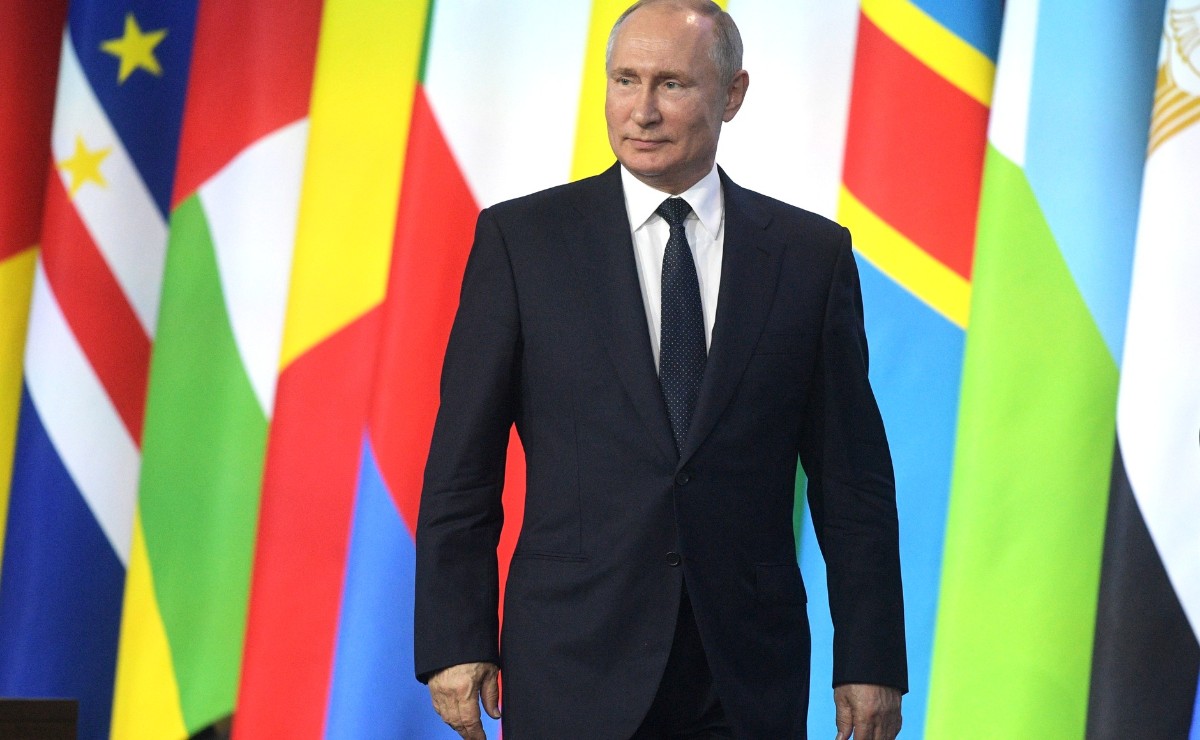 Courtesy: Kremlin
Courtesy: Kremlin
Fresh From Mid East Victory, Putin Seeks African Diplomatic Coup
The American withdrawal from the Kurdish controlled areas of Syria recently propelled Russia to center stage in the Middle East. In a meeting with with Turkey’s President Recep Erdogan on Tuesday in Sochi, Putin further cemented Russia’s indispensable position in the region by reaching an agreement to halt the Turkish offensive in Syria. After achieving a dominant position on the Middle East’s “fractured chessboard,” the next day Putin turned his attention to “a new geopolitical chessboard.” This week’s first Russia-Africa Summit indicates Russia is looking toward Africa to project power and build influence.
The summit is a crowning achievement representing a serious effort at re-engaging Africa and the culmination of several years of diplomatic initiatives. All of Africa’s 54 states have sent representatives to the summit, with the Kremlin anticipating the involvement of 43 heads of state or government. No less than 10,000 people are expected to attend, including thousands of businesspeople. The event is a prime opportunity for Putin to make his case that Russia is unique because it has the will and means to pursue agreements that are mutually beneficial instead of exploitive. In his opening remarks, Putin stated Russia had more to offer than weapons and security agreements, and highlighted joint efforts in extraction, agriculture, healthcare, and education. The event helps affirm Putin’s assertion that Russia “has always prioritized the development” of its relations with African countries.
Russia’s renewed interest in Africa coincides with a general “scramble for Africa,” with powers from around the world competing. This competition is driven by the continent’s potential. Africa has a lot to offer. It’s population of 1.2 billion is mostly under 25, which means it offers a large potential workforce. It contains the largest deposits of rare earth materials outside China, and since 2000 its overall GDP has grown by 5.1 percent a year on average.
Russia has varied interests in the region, including arms sales, natural resources, and the opportunity to project its power. Russia’s worsening relations with western countries, which have imposed sanctions, make trade with Africa attractive to an isolated Russia. Over the past decade, trade with Africa has increased by 350 percent. Trade grew from $5.7 billion in 2009 to $20.4 billion last year. Africa also presents the Kremlin the opportunity to advance its geopolitical interest on the world stage Africa contains nearly 25 percent of the world’s countries. African nations have three seats on the UN Security Council, known as the A3. Courting African nations allows Russia to challenge the U.S. and move toward a multipolar world order. Influence in Africa helps Russia resist international condemnation, such as when nearly half of African countries opposed or abstained from a UN General Assembly resolution on Crimea.
As in the Middle East, Russia’s success in Africa is due largely to the Kremlin exploiting European and American missteps. The intensification in Russian activity comes as “high-level attention to Africa from the United States and EU member countries is in short supply.” Similar to the Middle East, news that hundreds of troops in the region would be reassigned and that missions would wind down make it seem like the U.S. “has pulled back from [its] commitments.” Russia is capitalizing on these developments by seeking to convince African nations the Kremlin offers more reliable security arrangements than those previously offered by the US. Over the past five years, Russia secured 27 security cooperation deals with governments in Africa. Russia is seeking to expand its military foot print, including pursuing basing rights in around six countries as well as a naval base.
However, Russia’s actions in Africa show its weaknesses as well as its strengths. Its approach to the region, which heavily relies on arms and security agreements, reflect that it pursues its objectives on the cheap. Russia has used its modest hard and soft power resources to great effect, but it is at a serious disadvantage competing for overall influence in Africa. Compared to the United States or China, Russia is a bit player. In 2018, Russian trade with sub-Saharan Africa was $20 billion, while U.S. trade was $61 billion, Chinese trade was around $200 billion, and European trade was over $300 billion. Over the last twenty years, Russia claims to have provided $20 billion in debt relief, but Chinese loans over a shorter period may be as high as $143 billion. Still, elsewhere Russia has played weak hands well. It would be a mistake to write off its influence or aspirations entirely.





